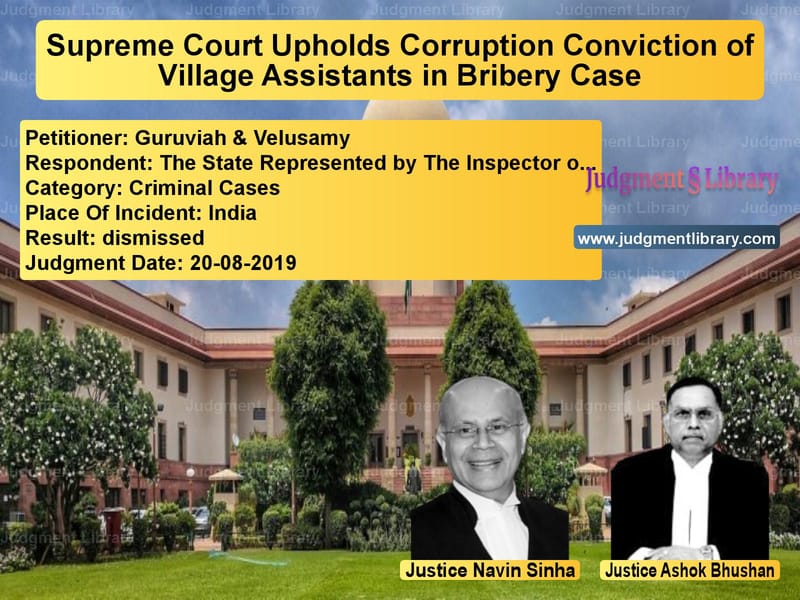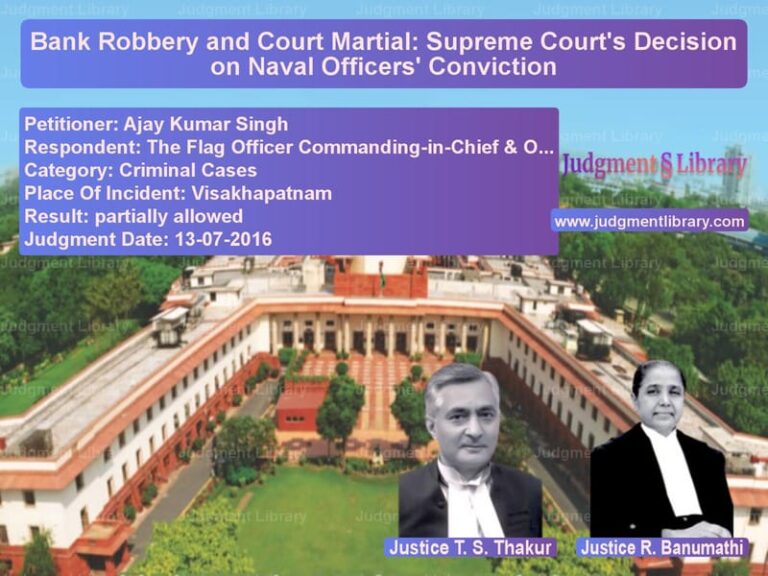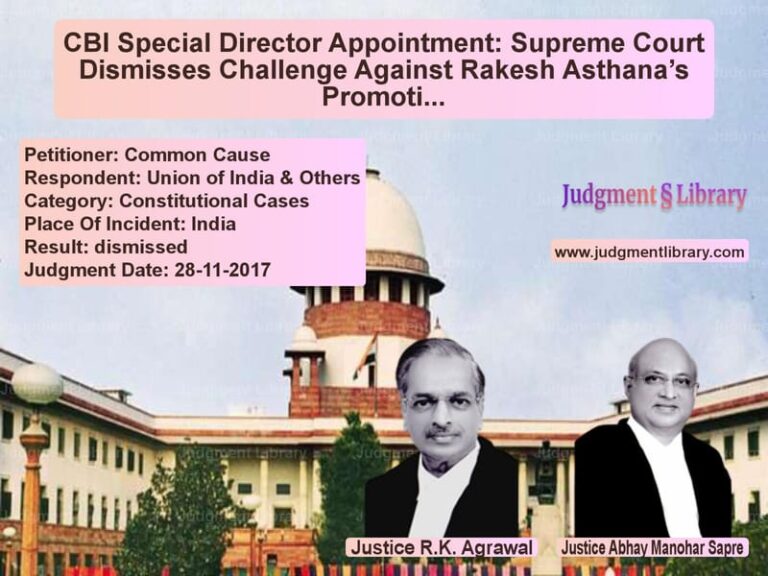Supreme Court Upholds Corruption Conviction of Village Assistants in Bribery Case
The Supreme Court of India, in its judgment dated August 20, 2019, upheld the conviction of two village assistants, Guruviah and Velusamy, under the Prevention of Corruption Act, 1988. The case revolved around a bribery scandal where a village administrative officer demanded a bribe for facilitating the transfer of an electricity connection. The appellants were found guilty of aiding and abetting the corrupt act and sentenced to rigorous imprisonment.
The judgment is a significant reiteration of India’s zero-tolerance approach towards corruption among public servants. The case highlights how even lower-level government employees, if involved in corruption, will not escape the scrutiny of the law.
Background of the Case
The case originated when P.W.2, the complainant, approached the village administrative officer for the transfer of an electricity connection in his name. The officer allegedly demanded a bribe of ₹600 for processing the application. On December 17, 2003, P.W.2 lodged a complaint with the Vigilance and Anti-Corruption wing, leading to a trap operation against the officer and his subordinates.
During the operation, P.W.2 handed over the bribe money to one of the accused, who in turn passed it to the other assistant. The transaction was captured, and all involved were arrested immediately. The appellants were later convicted under Sections 13(1)(d), 13(2), and 12 of the Prevention of Corruption Act, with a sentence of one year of rigorous imprisonment each.
Petitioner’s Arguments
The appellants, Guruviah and Velusamy, challenged their conviction, arguing:
- No Direct Demand: The village administrative officer was the only person who directly demanded the bribe. The appellants had no authority to approve the application.
- Menial Assistants: The accused argued that they were merely clerks who followed instructions and had no decision-making power.
- No Evidence of Conspiracy: There was no direct evidence linking them to a conspiracy with the village administrative officer.
- Bribe Mistaken for Tax Payment: The appellants contended that they received the money in the genuine belief that it was payment for land tax arrears.
Respondent’s Arguments
The State defended the conviction, stating:
- Bribe Was Passed Between Accused: The prosecution demonstrated that the accused handled the money before the village officer approved the application.
- Bribery Confirmed Through Trap Operation: The appellants were caught red-handed in possession of the bribe money.
- No Justification for Accepting Money: The prosecution pointed out that the alleged land tax had already been canceled by the State Government, nullifying the accused’s defense.
Supreme Court’s Observations
The Supreme Court, after examining the facts, made the following key observations:
- Acceptance of Money Was Not Innocent: The Court found that the accused deliberately handled the bribe money, confirming their role in the corrupt act.
- No Reason for Assistants to Accept Money: Since the accused had no role in approving applications, their involvement in handling the money raised strong suspicions.
- Legal Precedents Support Conviction: The Court referred to past cases, including T. Shankar Prasad v. State of A.P., emphasizing that indirect participation in bribery is enough for conviction.
Final Verdict
The Supreme Court dismissed the appeal and upheld the conviction and sentence of one year of rigorous imprisonment. The Court directed the appellants to surrender immediately and serve their remaining sentence.
Impact of the Judgment
This ruling reinforces strict anti-corruption measures and clarifies that even subordinate officials involved in bribery will not be spared under the law. It serves as a strong deterrent against corruption in public offices.
Conclusion
The judgment in Guruviah & Velusamy v. The State reaffirms India’s legal stance against corruption. It ensures that public officials, regardless of rank, are held accountable for their actions. The decision strengthens the fight against bribery and upholds the principle that corruption at any level will not be tolerated.
Petitioner Name: Guruviah & Velusamy.Respondent Name: The State Represented by The Inspector of Police.Judgment By: Justice Navin Sinha, Justice Ashok Bhushan.Place Of Incident: India.Judgment Date: 20-08-2019.
Don’t miss out on the full details! Download the complete judgment in PDF format below and gain valuable insights instantly!
Download Judgment: Guruviah & Velusamy vs The State Represente Supreme Court of India Judgment Dated 20-08-2019.pdf
Direct Downlaod Judgment: Direct downlaod this Judgment
See all petitions in Fraud and Forgery
See all petitions in Legal Malpractice
See all petitions in Other Cases
See all petitions in Judgment by Navin Sinha
See all petitions in Judgment by Ashok Bhushan
See all petitions in dismissed
See all petitions in supreme court of India judgments August 2019
See all petitions in 2019 judgments
See all posts in Criminal Cases Category
See all allowed petitions in Criminal Cases Category
See all Dismissed petitions in Criminal Cases Category
See all partially allowed petitions in Criminal Cases Category







